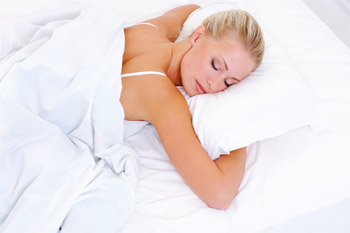Sheila Zhou Balance Your Hormones Naturally Interview

Sheila Zhou Balance Your Hormones Naturally Interview
Hormones are chemicals secreted by glands that relay signals from cell to cell, and they play a vital role in triggering how your body is feeling and functioning. Hormones affect different organs and are responsible for causing physical symptoms and altering your mood, metabolism, reproduction, energy levels and physical appearance. The human body consists of various types of hormones but for women the main sex hormones are oestrogen and progesterone.
Studies prove that women experience hormonal ups and downs at every age and stage of their lives. These fluctuations vary from pre-menstrual i.e. premenstrual syndrome (PMS), peri-menopausal and menopausal symptoms. Although all females have the same hormones, the experiences when it comes to symptoms can vary from person to person.
According to Sheila Zhou, expert Scientist at USANA Health Sciences, leading producer of high quality supplements, 'Hormones for women during their menstrual cycle can either be your best friend or your worst nightmare. Too little or too much can affect your skin tone and weight, or make you feel extremely irritable and tired."
These experiences of hormonal fluctuations can be challenging to deal with. To avoid them, Ms. Zhou shares her expert recommendations for balancing your hormones naturally in our interview.
To view the full range of USANA Health Sciences nutritional, weight management and personal care products visit www.usana.com.
 USANA Health Sciences was founded in 1992 in the United States by microbiologist and immunologist, Dr Myron Wentz. The products are backed by an accredited team of scientific experts and USANA has been awarded a 5-star rating for its nutritional products – the highest of any available in Australia in the Comparative Guide to Nutritional Supplements (4th Ed) by Lyle McWilliam, an independent Canadian biochemist.
USANA Health Sciences was founded in 1992 in the United States by microbiologist and immunologist, Dr Myron Wentz. The products are backed by an accredited team of scientific experts and USANA has been awarded a 5-star rating for its nutritional products – the highest of any available in Australia in the Comparative Guide to Nutritional Supplements (4th Ed) by Lyle McWilliam, an independent Canadian biochemist.
Interview with Sheila Zhou, USANA's Health Scientist
Question: What is a hormone in-balance?
Sheila Zhou: Hormones are internal chemical messengers in our body. They are produced by endocrine glands and control many different functions in our body. Small fluctuations in hormone levels can cause a big disruption in mood, growth and development and metabolism etc. Hormone imbalance occurs when hormone levels are too high or too low, or when our body does not respond to hormones the way it is supposed to. This may result in hormone disorders.
Question: What are some of the common signs and symptoms of a hormone in-balance?
Sheila Zhou: Different hormones play different roles in our body.
Too much thyroid hormone in the bloodstream will increase the speed of bodily functions and leads to weight loss, sweating, rapid heart rate, and high blood pressure.
In women, hormonal imbalance (for example, an imbalance in the ratio of the two major hormones – progesterone to estrogen) can cause carbohydrate craving, weight gain, bloating, fluid retention, anxiety, depression and mood swings.
 Question: When is it most common for women to experience issues with their hormones?
Question: When is it most common for women to experience issues with their hormones?
Sheila Zhou: Two major hormones that affect the menstrual cycle are progesterone and oestrogen, and have greater impact on women throughout adolescent years, during pregnancy and menopause. Teenage girls and women may be more susceptible to issues associated with hormonal fluctuations in their lives, such as PMS, polycystic ovary syndrome, and hot flushes.
Question: How can we prevent issues with our hormones?
Sheila Zhou: Have a nutrient rich diet
At any stage of your life eating well-balanced meals is important for good health. In order to achieve optimal nutrition, your diet needs to consist of a balance between clean proteins (beans, seeds, wild caught fish), healthy fats (coconut oil, avocado), antioxidant rich vegetables (broccoli, spinach, sweet potatoes) and healing spices and herbs (cinnamon, turmeric).
Sometimes, despite having a rich nutritional diet, your body can feel far from optimum, and that is when the benefits of taking health supplements come in. Some natural botanic extracts such as soy isoflavones, black cohosh, dong quai, licorice and chasteberry help support women's health during menopause, providing relief from a variety of menopausal symptoms, including hot flushes.
Soy isoflavones has also been shown to support bone health in menopausal women.
Avoid or limit the use of endocrine disrupting chemicals and opt to use natural skincare
Endocrine disrupting chemicals are unnatural chemicals found in man-made products, such as plastics, toxic household cleaning products and pesticides. Endocrine disrupting chemicals are extremely harmful to your body because they alter your balance of hormones, therefore triggering changes in the way it functions. Avoiding or limiting your use of household products with these chemicals will prevent these harmful toxins from entering your system.
Even though you don't -consume' these chemicals, endocrine disrupting chemicals can be absorbed through your skin, meaning you are exposed when any of these products come in contact with your body. By opting for preservative-free skincare and hair products such as USANA Sense range of products, you are eliminating the risk of disrupting the amount and type of hormones being produced.
 As you age, many females tend to use more anti-aging beauty products to iron out all facial imperfections. The downside to using anti-aging cosmetics is that some beauty products contain harmful chemicals. Instead of going to the cosmetic aisle however, try taking grape seed extract supplement instead to achieve that healthy age-less glow. Proanthocyanidins in grape seed extract not only helps with improving skin-aging appearance but assists in overall cardiovascular health as well.
As you age, many females tend to use more anti-aging beauty products to iron out all facial imperfections. The downside to using anti-aging cosmetics is that some beauty products contain harmful chemicals. Instead of going to the cosmetic aisle however, try taking grape seed extract supplement instead to achieve that healthy age-less glow. Proanthocyanidins in grape seed extract not only helps with improving skin-aging appearance but assists in overall cardiovascular health as well.
Get more sleep and interval exercise
Regulating a sleep cycle at 7-9 hours a day is essential for hormonal control, especially as cortisol (the stress hormone) is regulated at night. Cortisol helps your body respond to stress appropriately and prevents your body from getting sick. When your body is alert your cortisol levels increase. Sleep deprivation also increases the level of cortisol in your body and makes you more prone to developing diabetes or obesity.So getting adequate amounts of sleep prevents fluctuations in hormones and prevents your cortisol levels from increasing too drastically.
Getting more exercise is another significant way to balance our hormones naturally. Interval exercise releases hormones needed by the body, reduces stress levels, enhances immune system and regulates metabolic function.
Question: What foods will balance out our hormones?
Sheila Zhou: There is no single food that will do the magic trick to maintain hormonal balance. The key is to eat a nutritionally balanced diet with lots of fruits and vegetable to ensure adequate intake for dietary fibre. Certain nutrients are particularly important for women, such as iron, calcium, vitamin B, vitamin D, folate, fish oil.
Question: And, what supplements would you suggest to balance out our hormones?
Sheila Zhou: For women, there are some herbal supplements, such as soy isoflavone, chastberry and black cohosh, that may help relieve symptoms associated with hormonal fluctuation such as PMS and menopausal. I'm not sure if there is a natural supplement that would be able to balance out our hormones that is applicable to every individual in every situation.
Question: How does soy affect our hormones?
Sheila Zhou: Soy contains isoflavone, known as phyto-oestrogen due to its structural similarity to oestrogen. Soy Isoflavone has weak oestrogenic activity. Current scientific evidence is inconclusive on the exact mechanisms of soy's effect on our hormones.
Interview by Brooke Hunter
MORE



